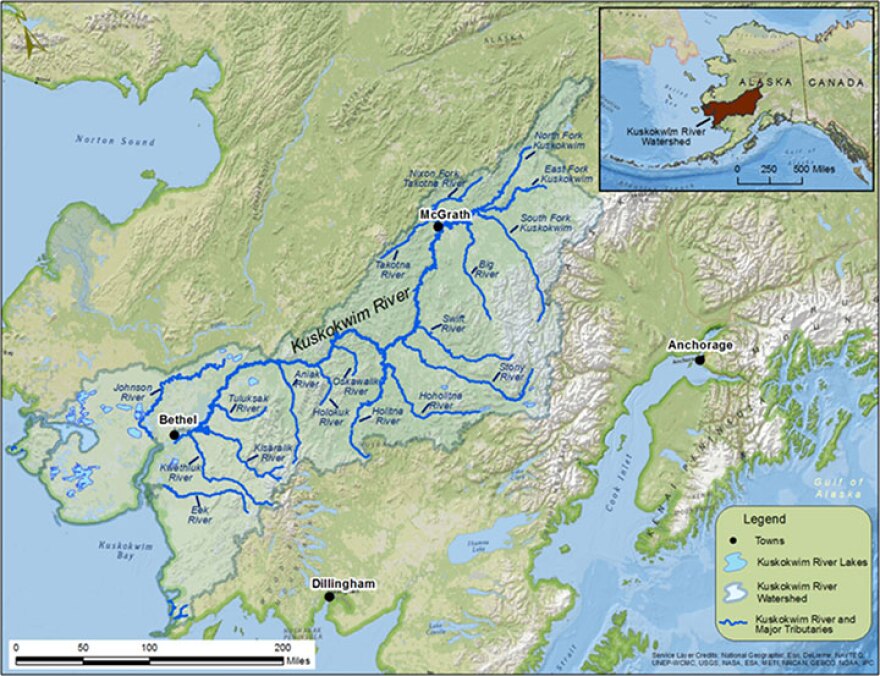A cooperative approach to fish- and-wildlife management …
Mike Williams heads a western Alaska Native organization, and he says last month’s historic agreement with federal fish and wildlife regulators will ensure there’ll be enough king salmon for subsistence users on the Kuskokwim River now and in the future.
“I’m really excited … to work formally with the U.S. Fish and Wildlife Service and the Kuskokwim River Intertribal Fish Commission, to make sure that our people have enough to eat,” he said.

Williams, who chairs the intertribal fish commission, told a local radio news reporter that the memorandum of understanding or MOU formalized the role Natives groups will play in co-managing Kuskokwim kings along with the federal agency.
Many observers, like Wilson Justin, say it’s a long-overdue change that’ll improve fish and wildlife management and level the playing field to help subsistence hunters and fishermen compete against those from outside the region who can afford better equipment.
“Those people who are directly dependent on resources generally cannot compete in any way, shape or form with people who have the resources, tools and means to access game,” he said.

Justin is an elder from the village of Nabesna who’s been working for years to promote Native fish and wildlife comanagement. He says indigenous peoples can offer generations of knowledge about their area, and that co-managing the resources could help them argue for allocating them more fairly.
“The people who have the most money and the most resources win automatically, hands-down,” he said, “and the people who are dependent on the resources aren’t even in the game.”

That’s one of the reasons hunting and fishing regulations generate so much controversy in Alaska and elsewhere around the far north north. But Native comanagement offers opportunities for cooperation, says Jill Klein, ex-executive director of the Yukon River Drainage Fisheries Association. Klein cites a voluntary ban on harvest of Yukon River king salmon observed over the past two years by both subsistence and commercial fishermen.
“They’ve been working collaboratively as the king salmon runs have declined since the late ’90s,” she said.
Klein says despite subsistence users’ need to put food on the table, they’ve agreed to the moratorium to allow the king population to recover.
Jill Klein now works as a special assistant to the Alaska Department of Fish and Game commissioner.
Editor's note: KYUK’s Charles Enoch contributed to this report.



